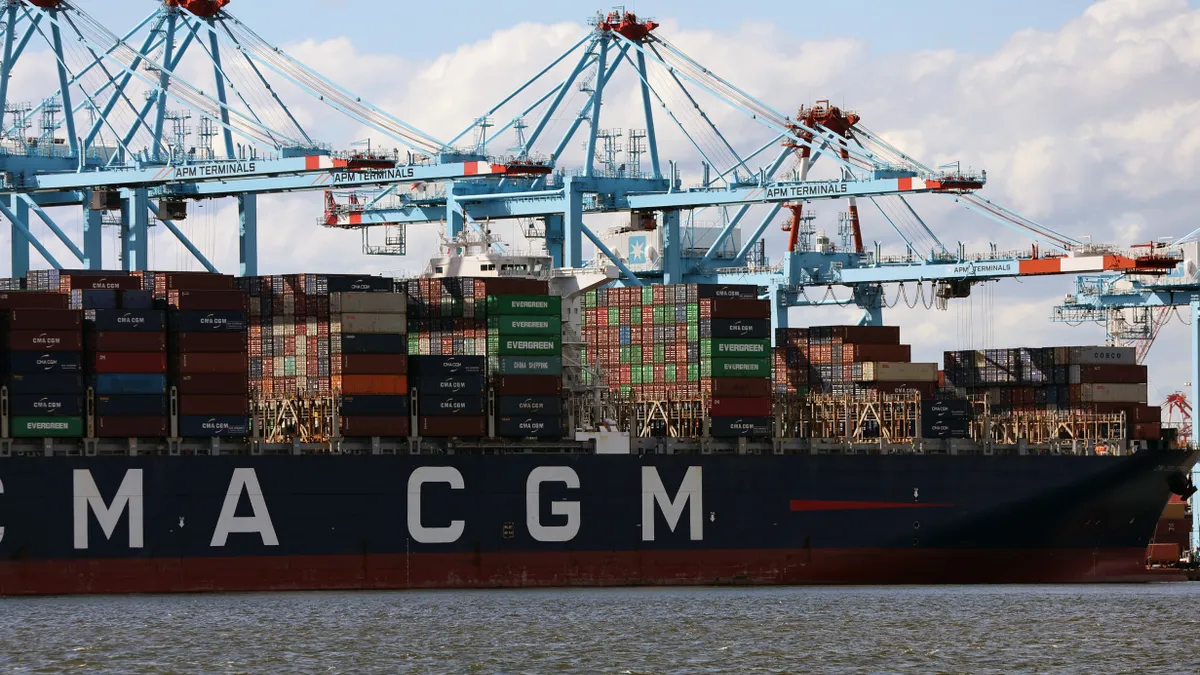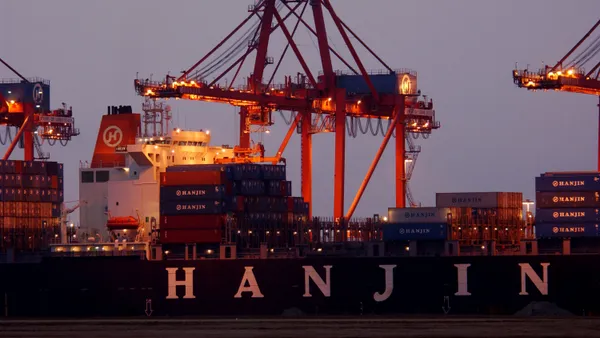Dive Brief:
- The Port of New York and New Jersey will charge ocean carriers a fee for long-dwelling containers beginning Sept. 1 in a bid to reduce the number of empties stacking up on its docks, officials announced Tuesday.
- The $100-per-container fee will be charged quarterly to carriers whose outgoing container volume does not equal or exceed 110% of their incoming container volume.
- The fee, one of the port’s efforts to better handle record import volumes, is subject to a 30-day public comment period and is scheduled to be reassessed in a year.
Dive Insight:
The East Coast’s busiest container port has joined its West Coast counterparts in Los Angeles and Long Beach in threatening ocean carriers with penalties for using its terminals for storage.
Los Angeles and Long Beach port officials, who have postponed their fee each week since last fall instead of implementing it, say the threat alone has been sufficient to improve throughput.
The New York and New Jersey port plans to use proceeds from the fee to offset the costs of providing additional storage capacity “and other expenses incurred by the glut of empty containers,” according to the announcement.
As carriers shifted more cargo to avoid congestion on the West Coast, New York and New Jersey reported a 12% increase in cargo YoY, which represents a 34% surge compared to 2019. A queue formed on the water near the port as vessels waited to be unloaded this year, and the port is contending with more containers lingering longer on its docks.
The announcement did not provide details on the quantity of empty containers or average dwell times. For purposes of the fee, incoming and outgoing containers include both loaded and empty containers, excluding rail volume.
The high numbers of empties “are affecting the regional supply chain that is already under stress from various sources across the country,” Bethann Rooney, director of the Port Department at the Port Authority of New York and New Jersey, said in the announcement.
The Port Authority noted it had taken other steps to provide more storage capacity, including the repurposing of 12 acres at the Port Newark and the Elizabeth-Port Authority Marine Terminal for temporary empty and long-dwelling container storage. The port is negotiating for and investigating more storage space.
“We emphatically encourage ocean carriers to step up their efforts to evacuate empty containers quicker and at higher volumes to free up much needed capacity for arriving imports in order to keep commerce moving through the port and the region,” Rooney said.














